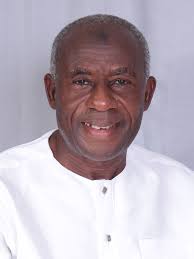
The political landscape of North East Ghana is shaped by a blend of tradition, development, and leadership. While the region has seen significant progress in various sectors, the financial standing of its political figures often remains a topic of interest. This blog delves into the wealth of some of the most influential politicians from North East Ghana, shedding light on their sources of income, investments, and contributions to the region’s growth.
Understanding Wealth in North East Ghana’s Political Sphere
Before delving into the specifics, it’s essential to understand the factors contributing to the wealth of politicians in North East Ghana. Their financial standing is often a combination of:
-
Political Positions: Holding significant offices can lead to lucrative opportunities and allowances.
-
Business Ventures: Many politicians invest in agriculture, real estate, and other sectors, diversifying their income streams.
-
Family Inheritance: Some inherit wealth from prominent families, which they further augment through strategic investments.
Prominent Politicians and Their Estimated Net Worth
1. Alhaji Collins Dauda
-
Estimated Net Worth: $50 million – $80 million
-
Background: Alhaji Collins Dauda is a seasoned politician from the Bono Region, which is geographically adjacent to North East Ghana. He has served in various capacities, including as a Member of Parliament and Minister for Works and Housing.
-
Sources of Wealth: His wealth is attributed to his extensive political career, investments in real estate, and involvement in the construction industry.
2. Alhassan Abdul-Fatawu
-
Estimated Net Worth: Information not publicly disclosed
-
Background: Alhassan Abdul-Fatawu is a Ghanaian politician and lawyer, currently serving as the Member of Parliament for Yendi Constituency in the Northern Region.
-
Sources of Wealth: While specific figures are not available, his wealth is believed to stem from his legal practice, political career, and family background.
3. Mustapha Abdul-Hamid
-
Estimated Net Worth: Information not publicly disclosed
-
Background: Mustapha Abdul-Hamid is the Chief Executive Officer of the National Petroleum Authority (NPA) and a member of the New Patriotic Party.
-
Sources of Wealth: His income sources include his role at the NPA, previous positions in academia, and potential investments in various sectors.
4. Abdul-Aziz Ayaba Musah
-
Estimated Net Worth: Information not publicly disclosed
-
Background: Abdul-Aziz Ayaba Musah is a Ghanaian politician and a member of parliament for the Mion constituency in the Northern Region.
-
Sources of Wealth: His wealth is believed to be derived from his political career, business ventures, and family enterprises.
Factors Influencing Wealth Accumulation in North East Ghana
Several elements contribute to the financial success of politicians in this region:
-
Access to Resources: Politicians often have better access to land and natural resources, which can be leveraged for business ventures.
-
Strategic Investments: Investing in sectors like agriculture, real estate, and education can yield significant returns.
-
Political Influence: Holding key positions allows for the allocation of contracts and projects that can be financially beneficial.
The Role of Wealth in Regional Development
While the accumulation of wealth by politicians can sometimes raise eyebrows, it also plays a crucial role in the development of North East Ghana:
-
Infrastructure Development: Wealthy politicians often fund or initiate projects that improve roads, schools, and healthcare facilities.
-
Job Creation: Their business ventures can lead to the establishment of companies that provide employment opportunities for locals.
-
Educational Support: Financially successful politicians may establish scholarships or educational institutions, fostering human capital development.
Frequently Asked Questions (FAQs)
1. Who is the wealthiest politician in North East Ghana?
-
While specific figures are not publicly disclosed, politicians like Alhaji Collins Dauda are considered among the wealthiest in the region due to their extensive political careers and business ventures.
2. How do politicians in North East Ghana accumulate wealth?
-
They often accumulate wealth through political positions, investments in sectors like agriculture and real estate, and family inheritances.
3. Are there any female politicians among the wealthiest in North East Ghana?
-
Information on female politicians’ wealth in North East Ghana is limited, as many are not publicly disclosed.
4. Do wealthy politicians contribute to regional development?
-
Yes, many use their wealth to fund infrastructure projects, create jobs, and support education in the region.
5. Is there transparency regarding the wealth of politicians in North East Ghana?
-
Transparency varies, and many politicians’ financial details are not publicly disclosed, making it challenging to ascertain exact net worths.
6. How does the wealth of politicians impact their political influence?
-
Wealth can enhance political influence by providing resources for campaigns and enabling the initiation of development projects.
7. Are there any controversies surrounding the wealth of politicians in the region?
-
Occasionally, the accumulation of wealth by politicians raises questions about transparency and the ethical use of resources, leading to public debates.
8. How do politicians’ business ventures affect local communities?
-
Successful business ventures can lead to job creation and economic growth, benefiting local communities.
9. Are there any initiatives to promote transparency in politicians’ wealth in North East Ghana?
-
Efforts are being made to promote transparency, but challenges remain due to limited access to financial disclosures.
10. How can the public access information about politicians’ wealth?
-
Public access to information is limited, but some details may be available through government disclosures or media reports.
In conclusion, while specific details about the wealth of politicians in North East Ghana are often not publicly disclosed, it is evident that their financial standing plays a significant role in shaping the region’s development. Through strategic investments and political influence, these individuals contribute to the growth and modernization of their communities. However, the need for transparency remains crucial to ensure that their wealth accumulation aligns with ethical standards and contributes positively to the public good.